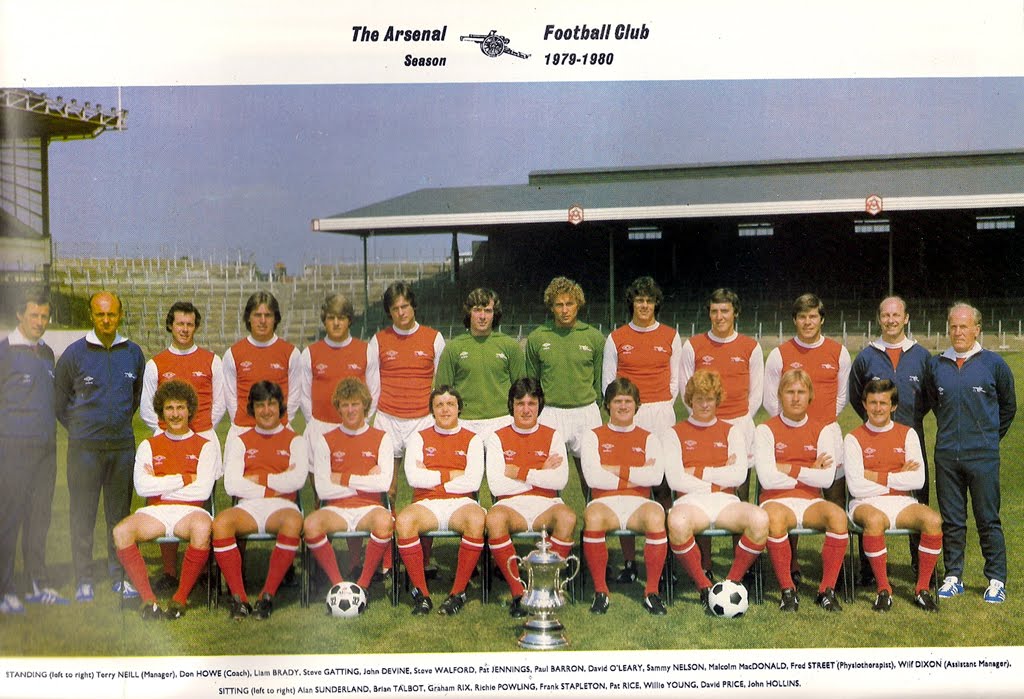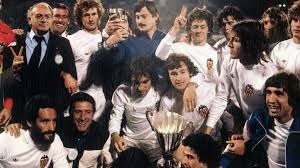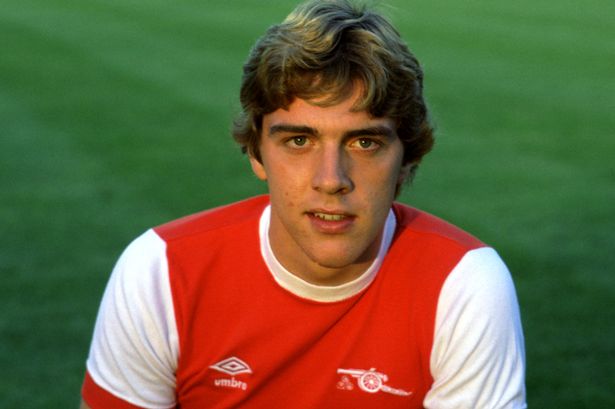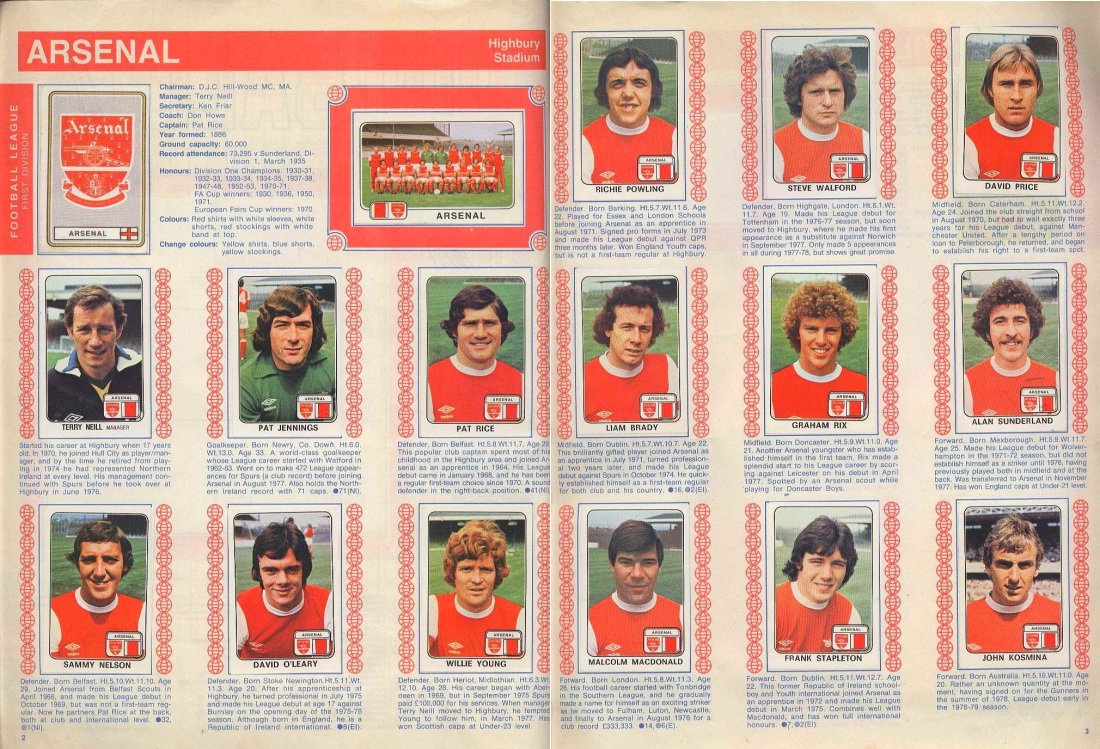
Arsenal, 1979/80. It tends to mean one of two things from a Liverpool supporting perspective.
On one hand, you have August and the Charity Shield. Terry McDermott at the peak of his 1977-81 world-class powers – yes, you read that correctly, world-class powers – and ‘that’ turn and finish by Kenny Dalglish. The 1979 Charity Shield is my pre-set Charity Shield.
On the other hand, you have an insane 20-day span, between April 12 and May 1, in which Liverpool faced Arsenal five times, with both clubs also finding the time for another couple of games each, against other opponents.
One was a First Division encounter at Anfield, which was sandwiched neatly in the middle of a four-game FA Cup semi-final odyssey, and when Brian Talbot settled the protracted FA Cup stalemate at Highfield Road on May 1, Liverpool fans saw yet another potential league and FA Cup double vanish before their very eyes.
Through Anfield tinted glasses, the 1980 FA Cup final was largely viewed in two ways. The classic ‘what if?’ scenario – for the record, neither Jimmy Case or Alan Kennedy would have been fit to play in a hypothetical Liverpool vs West Ham United final, but surely the Hammers would have gone rabbit in the headlights against Bob’s finest? – and conversely, behind barely suppressed laughter, as after doing all the hard work, Arsenal blew the final against Second Division opposition.
Four days later, you would have had to be ice to the core, had you not felt a degree of sympathy for the team from Highbury, as they lost on penalties to Valencia, in the European Cup Winners’ Cup final.

With no time to stay on the floor for long, Arsenal had to be at Molineux 48-hours beyond that devastating loss in Brussels, to face Wolverhampton Wanderers, in their penultimate league game of the season. Win those final two games and the consolation of UEFA Cup football would be theirs in 1980/81. Arsenal won 2-1 in the Black Country and were left with a trip to Middlesbrough three days later to decide the issue.
It was stunning that it had all boiled down to this. Arsenal had started the season erratically, winning only 3 of their first 12 league games, but progressing well in both the Cup Winners’ Cup and the League Cup, inclusive of beating Leeds United 7-0 in a League Cup replay in early September. More First Division opposition was brushed aside, in the shapes of Southampton and Brighton and Hove Albion, on the way to a shock quarter-final exit at the hands of Third Division water-treaders, Swindon Town. What is it with Arsenal and Swindon Town, when it comes to the League Cup?
The biggest surprise to the loss against Swindon, was that Arsenal had at last found some consistency at that point. Steadier league form, had been matched with edging past Fenerbahce and Magdeburg in the Cup Winners’ Cup, ensuring a European interest into the Spring months.
From the turn of the year, Arsenal played 31 games between the New Year’s Day fixture away to Southampton and the league game at home to Nottingham Forest, just five days prior to walking out at Wembley Stadium, to face West Ham in the FA Cup final. Of those 31 games, they lost only twice.
This was a run of games which encompassed facing Liverpool five times, trips to White Hart Lane, Goodison Park, Maine Road, the visits of Leeds, West Bromwich Albion, Forest and Aston Villa, an FA Cup run which took in 10 games before even reaching Wembley and a two-legged Cup Winners’ Cup semi-final against the mighty Juventus, in which Arsenal became the first English club to come away from Turin with a win against I Bianconeri.
Arsenal had earned their double shot at cup glory in May 1980.
This wasn’t an unremarkable Arsenal side either. Yes, Tottenham Hotspur might have been busy throwing out interesting shapes with Osvaldo Ardiles, Ricardo Villa and Glenn Hoddle, which would eventually lead them towards a couple of FA Cups and a UEFA Cup, but the strings of this Arsenal were pulled by Liam Brady, who provided the ammunition for Frank Stapleton and Alan Sunderland and was protected by Talbot. Pat Jennings was in goal, behind a defence which was marshalled by David O’Leary, Willie Young, Pat Rice and Sammy Nelson. The pre-disgraced Graham Rix was on the wing and the ageing, but still useful John Hollins was there to make whimsical cameo appearances.
They even had their own David Fairclough, their very own Supersub, Paul Vaessen. Scorer in Turin, of the goal which took Arsenal to the final of the Cup Winners’ Cup, Vaessen was only 18 when he scored that goal. By 21, his career was over, due to ruptured knee ligaments.

Tragically, Vaessen was dead before his 40th birthday, succumbing to a suspected drugs overdose, after his post-football life hit a tailspin which saw him drift from manual job, to manual job, becoming hooked to heroin and at one stage barely surviving a frenzied knife attack during a drug deal which went wrong.
Why those final few games of the 1979/80 season went so badly for Arsenal is open to interpretation. Maybe they relaxed too much, after such an intense run to reach the business-end of the campaign, having navigated their way past the best two teams in Europe to reach those two cup finals?
As good as the teams they lost to in those two finals were, it is certainly an anomaly, to defeat Liverpool and Juventus, only to fall short against West Ham and Valencia.
All wind removed from their sails, Arsenal capitulated at Middlesbrough, losing 5-0. It was a defeat that marked the end of a stunning 70 game season. Trophies painfully just out of reach and even a UEFA Cup spot denied them due to the introduction of UEFA’s new-fangled coefficient system.
1980 became a watermark year for Arsenal. Brady was sold to Juventus, while the club signed Clive Allen from QPR, only to pack him off to Crystal Palace 62 days later, in part-exchange for Kenny Sansom. Within a year, Stapleton had been lost, to the club from Old Trafford,and an era was over.
There might have been a conservatism to Terry Neill’s Arsenal, but with Brady, Stapleton and Sunderland as a free-spirited attacking venture, there was always a subtle entertainment to the 1979/80 Arsenal that goes widely unacknowledged.
A 31-game span put the 1979/80 Arsenal on the brink of greatness, but the 10 days which bookended facing West Ham in the FA Cup final and losing at Middlesbrough, where it all unravelled, was almost hypnotic. For that alone, I’ve always been able to forgive them edging that four-game epic of an FA Cup semi-final.
70 games and no cigar.

Steven Scragg
@Scraggy_74
@somegreengrass



I would imagine the Arsenal were particularly galled by the extremely favourable refereeing for Valencia as well – apart from disallowing a perfectly good Arsenal goal, he mysteriously forgot the rule that goalkeepers cannot move at penalty kicks and was repeatedly struck by this temporary amnesia for all Valencia’s kicks.
LikeLike